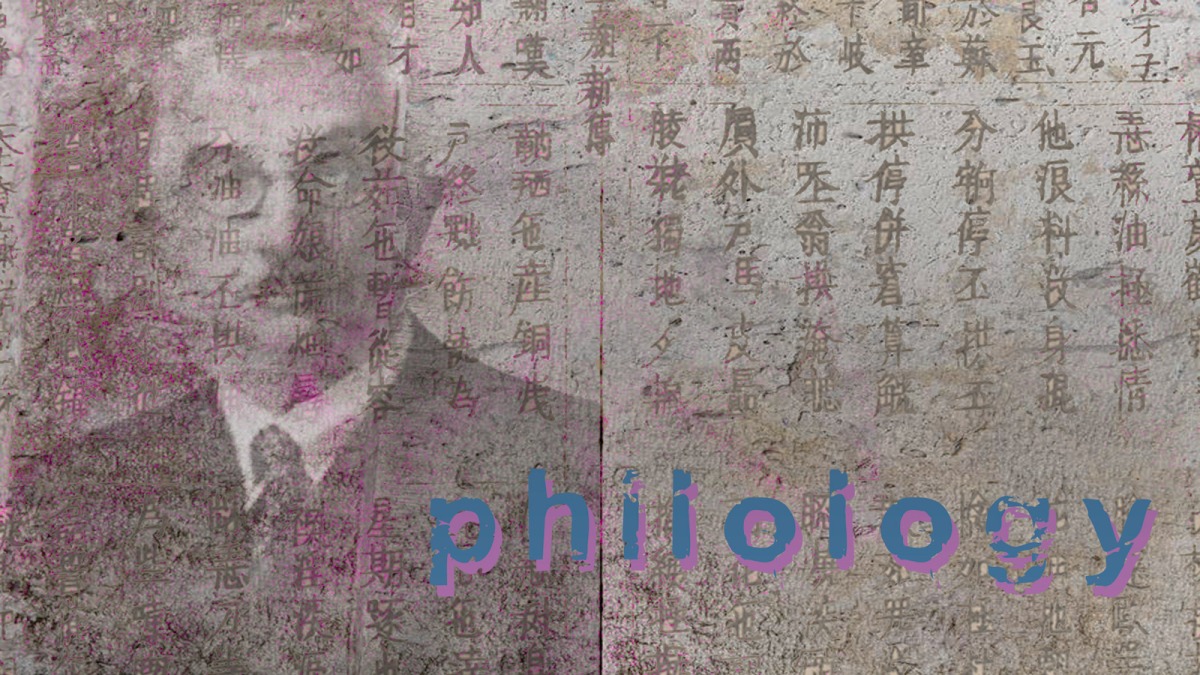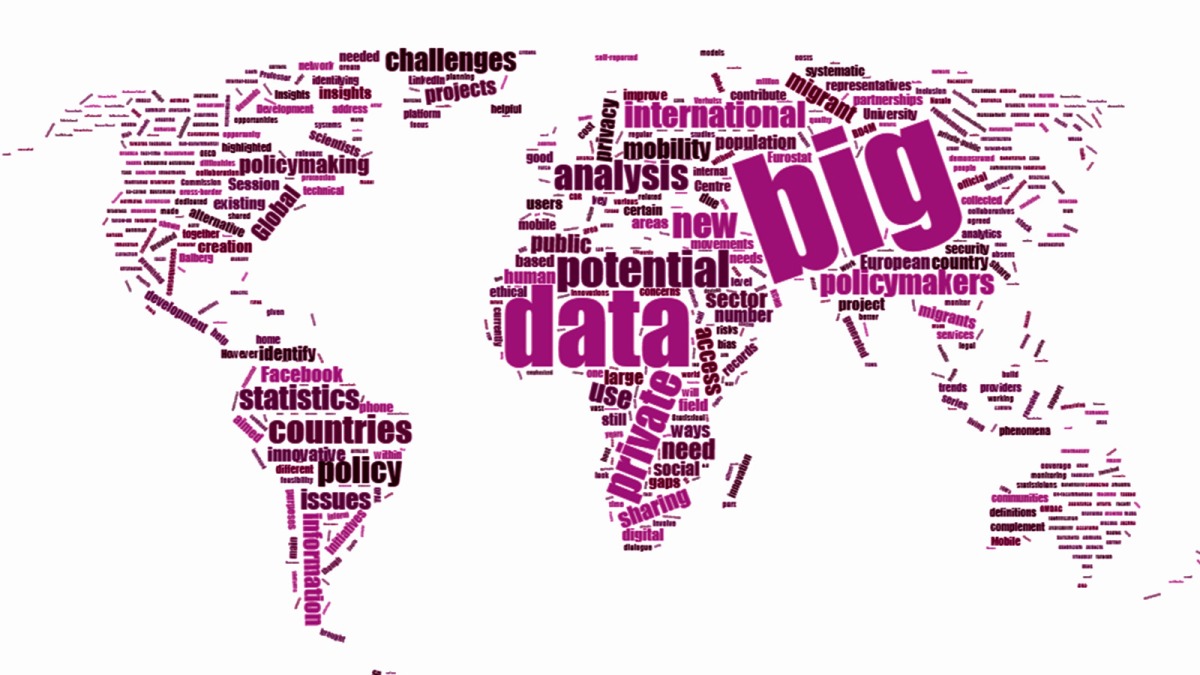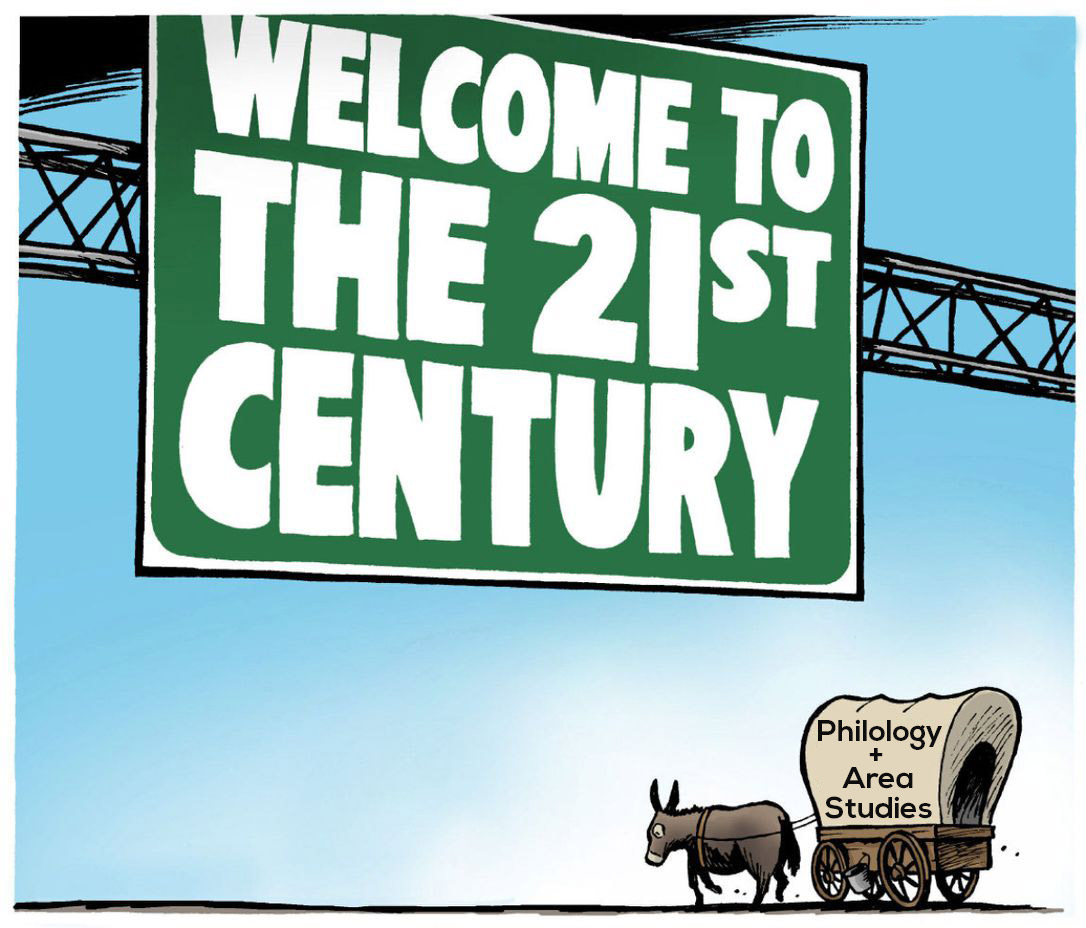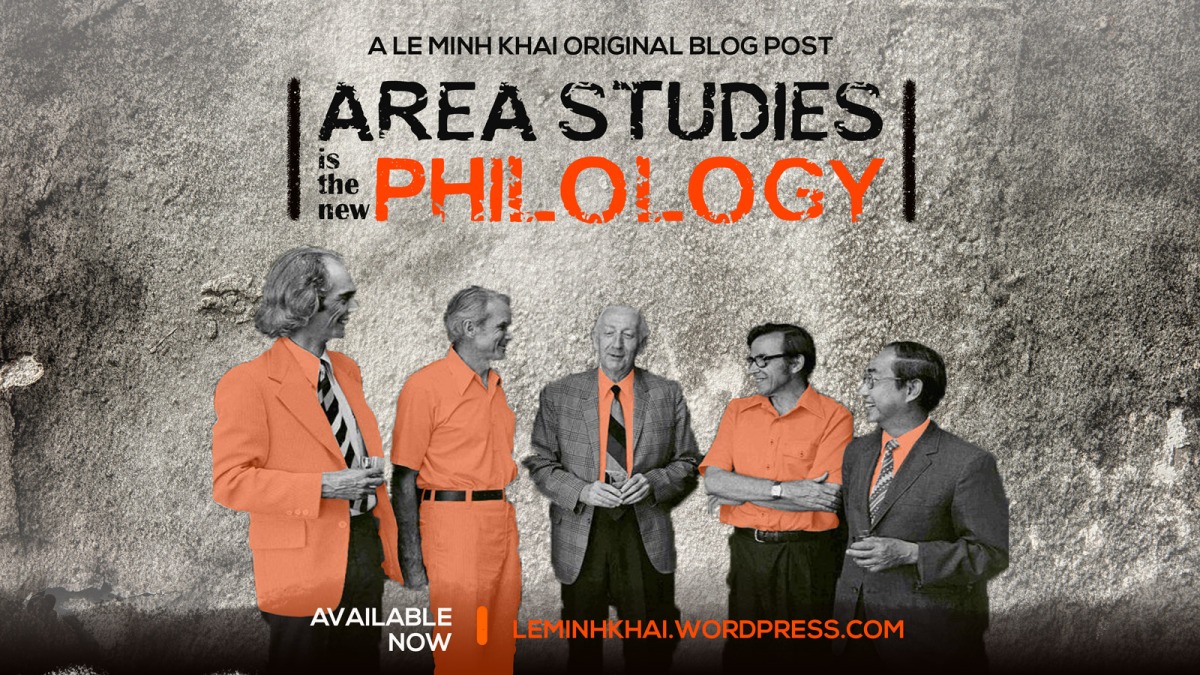Knowledge production continuously transforms alongside changes in society and technology. At times, however, societal and technological changes are so profound that forms of knowledge that had previously been considered of central importance get displaced by new ways of knowing.
We are currently living in such a time of profound social and technological change (think globalization and the Digital Revolution), and area studies is a realm of knowledge production that is losing its position of previously held importance.
Interestingly, were we to look back at the rise of area studies in the decades following World War II, another time of profound change (think decolonization and the Cold War), we would find that area studies at that time itself replaced an earlier way of investigating and knowing the world: philology (the study of literary texts).

In the article that I discussed in the previous post (“Southeast Asian Studies in the Age of STEM Education and Hyper-Utilitarianism”), historian Thongchai Winichakul has a nice discussion about area studies and the earlier approach to knowledge production that it displaced, what he calls the “European Oriental studies” of colonial-era scholars.
He explains the difference between the approaches of these two “styles” of knowledge production as follows: “. . . European Oriental studies and the American area studies entailed different ‘styles’ of knowledge, emphasizing different subjects, sub-fields, disciplines, and so on.
“Under the colonial ideology that claimed itself to be the champion of ancient civilizations, Oriental studies focused on the classical subjects such as philology, epigraphy, archaeology, art history, ancient history and classical literature.
“American area studies responded to the demand for knowledge for counterinsurgency and economic modernization. It paid more attention to the social sciences and the related humanities, namely political science, anthropology, modern history and the literature on nation-states.” (159)

In the rest of this article, Thongchai essentially tries to think about what kind of new “style” of scholarship might emerge in the digital age, and as Asia becomes a more active site of knowledge production. In thinking about the challenges that technological change is bringing to the world, Thongchai makes the claim for the continued central importance of area studies knowledge and approaches.
In particular, he sees the qualitative inquiries that are at the core of area studies approaches as unique, as they lead to forms of knowledge that quantitative approaches associated with “big data” and science, he argues, do not. And he is particularly (and understandably) opposed to the efforts of some university administrators to attempt to evaluate area studies scholarship based on quantifiable metrics.
In discussing that matter, he states that “The humanities and area studies share at least one fundamental property that makes them categorically different from the sciences, namely, they are language-based knowledge, produced from the understanding of language, culture, and history, and mainly using interpretive methods, not empirical, material-based knowledge, produced mainly by quantifiable and deductive methods.” (173)

Putting aside the issue of evaluating qualitative scholarship by quantitative means (which I agree is a problem), the historian in me cannot help but see a parallel in the past in this effort to make a claim for the importance of the language-based knowledge produced by area studies.
More specifically, I’m reminded of papers I’ve read from the 1950s and 1960s where scholars with training in philology complained about the increasing popularity of the social sciences.
How, they asked, could anyone truly understand a society if s/he could not read the classical texts of that society?
Indeed, one could argue that they were right. Since the 1960s there has been no shortage of substandard scholarship produced on premodern Southeast Asia by area studies specialists who do not have the philological skills to read and understand premodern texts.
At the same time, however, it is equally clear that many philological studies in the past were far too narrowly focused to be able to answer many of our questions about the world (hence the need for the social sciences).
So keeping philology at the center of scholarly inquiry would not have helped move scholarship forward. But the move away from philology came at a cost for our understanding of premodern history (and of course we cannot assume that all social science scholars have possessed stellar linguistic skills. . . but that topic opens a different can of worms).

So philology was displaced by area studies, but that does not mean that it disappeared.
My own scholarship has relied heavily on both philology and area studies scholarship. When I was a graduate student in the 1990s, there were no longer any faculties/departments of philology where I studied, but by gaining a strong foundation in modern and classical Chinese and by reading and thinking through the philological studies of earlier generations of scholars, I was able to gain a foundation in philology and to combine that with the ideas that contemporary scholars were writing about in the social sciences and humanities.
Given my own experience, I suspect that the graduate students of the digital age will do the same. It’s great to be able to work with big data. And everyone in the field of Digital Humanities knows that there is a two-stage process in working with data: you begin by using quantitative approaches to try to discover something interesting, and then you dig in with qualitative analysis.
In engaging in that qualitative analysis, I also suspect that students in the twenty first century will face a situation similar to the one that I did in the 1990s. There may not be any Asian Studies programs at their universities (just as there were no philology departments in mine), but they’ll find enough scholarship to help with their work, and they’ll combine that with whatever new ideas are circulating.

Will their scholarship be good? Some will be, but just as the world of area studies has produced plenty of weak pieces of scholarship, so will there continue to be substandard scholarship in the twenty first century.
As such, whatever shape the new “style” of scholarship on Southeast Asia ends up taking in the digital age, we probably don’t need to worry all that much. Area studies will become the new philology. And just as the displacement of philology by area studies led to scholarship that was both stronger and weaker than the scholarship of an earlier era, so will whatever form scholarship in the digital age takes produce works that are both stronger and weaker than those produced during the age of area studies.


